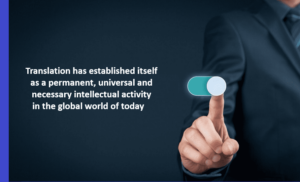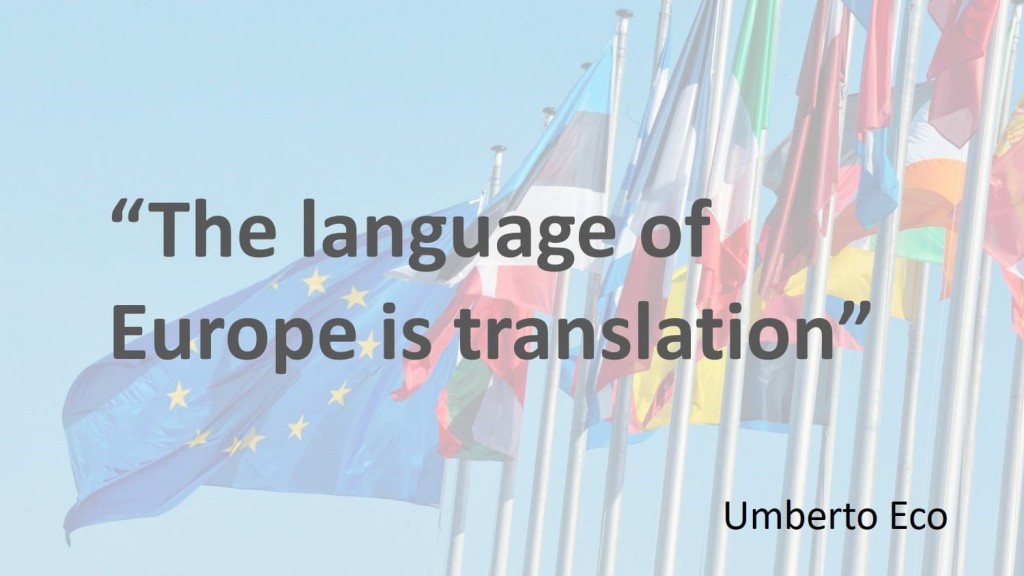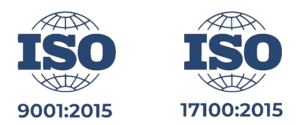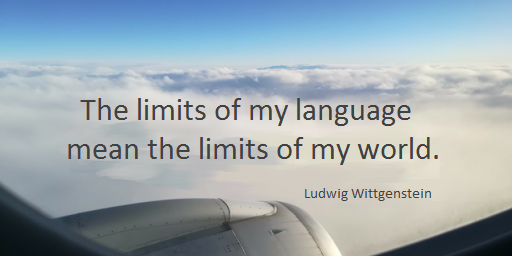
Translation as an activity exists at least since mankind started developing trade millennia ago; so, if we include the interpreting of spoken text, it is no exaggeration to say that the origins of the language industry are older than those of written language.
By definition, translation is the process of changing text created in one language into another language. This necessarily involves skillful interpretation because it cannot be done simply word for word without potentially altering the whole meaning of the original text.
The language industry is the sector of activity dedicated to facilitating multilingual communication, in both oral and written format.
Globalisation and the rise of the Internet have fostered a worldwide market for professional translation services and have facilitated so-called language localisation.
We are here to competently assist you in Translating what you wish to say, getting your message across effectively. Our standard of Professional Translation means to not just translate words yet ideas.
“The greatest obstacle to international understanding is the barrier of language.” (Christopher Dawson)
With our native language support (please see the page ‘Our languages‘), you can break this barrier as we have you covered with translation for two of the ultimately most important languages used in the world, whatever your context and purpose. We put the power of language and effective polyglot communication in your hands.
Let AVALON find the right words for you!
Going beyond the language limits for you in English and German each across all variants spoken today. Remember: The language in which we think and communicate actually is our world. The more effectively we employ language, and the more multilinguality we can avail of, the less limited our world will be and the wider our horizon.
What is the process of Translation?
Translation is not a matter of words only: there is much more.
There is word meaning, there is sentence meaning and there is a coherent message for the whole document (for instance a letter, an article, a book, a presentation, a legal document, a software application, a web page to be visited by hundreds or thousands of people, etc.). Meaning goes much beyond just stringing words together, and conveying full messages means even recreating the feeling for your target audience – this is not an easy business.
The definition of translation as the process of translating what is being said in one language into another sounds pretty obvious, and it is what most people would probably say if you asked them to describe what is ‘translation’.
What is not too obvious, however, is that all but the most basic of translation involves the translator adding their own skill and judgement in order to best capture the essence of what the author of the original document meant to say.
Unlike in a scientific calculation or a mathematical equation, where there is typically a right and a wrong answer, language is much more subtle and nuanced so that no two translators will produce exactly the same finished texts even though both are equally accurate. Generally, the more abstract a document, the more variation between two translations of it are likely to be, even though they both are “correct”. For instance, there will be much more variance in the translation of a poem, which is characterised by emotion and personal interpretation, than in the translation of a user manual for a dishwasher, being a text of little ambiguity only.
The concept of translation has two principal approaches – metaphrasing (turning into exactly corresponding words, “word by word and line by line”), and paraphrasing (using different own words to express the original meaning). Due to idiom and the wide variety of local usages, word-for-word translation has long been considered inadequate, and professional translation takes into account the vocabulary, grammar, syntax, idiom, and local usage of the target audience while remaining faithful to the text and context of the original document.
It is a complex overall process, and its result is a creation of the human intellect. Translators are sometimes described as “secondary authors” of the original text.
“Translating is like writing… backwards and in high heels.“ (Daniel Hahn)
Indeed, without meaning to sound pretentious, it can be said that translations might almost be thought of as being closer to works of art than to mechanical mappings from one language to another.
“The translation called good, has original value as a work of art.” (Benedetto Croce)
AVALON’s Professional Translation services overview:

Legal & Administrative Translation
Business & Financial Translation
Technical & Scientific Translation
Kindly be aware that any of our service descriptions here are just a general outline.
Upon genuine further interest on your part, we will be happy to provide you with more detailed information and work out a specific proposal tailored to your needs.
The types of translation described above often merge into each other in practice, and we can of course easily take care of a mix of documents, such as contracts, company registry documentation, correspondence, and financial statements, all in one order.
Keep it simple, practical and effective!
There are all different kinds of processes and technologies that can work for these various translation types. What makes sense for one, might not work for another. We will know and apply what’s best in view of your project specifics.
Speaking of technologies, the development of new ones combined with the increasing demand for translation services and the rise in competitiveness has brought a change in the dynamics of the translation industry. Nowadays, translators have numerous tools and resources at their disposal to assist them throughout the translation process, whether to improve their accuracy or optimise their time.
Thanks to Machine Translation (MT), based on Artificial Intelligence,  translations can now be produced virtually at the touch of a button quickly, cost-effectively and to a somewhat reasonable quality. MT is the automated translation of text by software or a learning algorithm based on a neural network. Its core element is a translation memory, called the MT engine, which has been trained for a language based on reference material and specialised terms.
translations can now be produced virtually at the touch of a button quickly, cost-effectively and to a somewhat reasonable quality. MT is the automated translation of text by software or a learning algorithm based on a neural network. Its core element is a translation memory, called the MT engine, which has been trained for a language based on reference material and specialised terms.
These practical everyday helpers are certainly useful and good enough for some purposes, such as gathering information quickly, internal communication, social media, and generally texts not requiring much creativity. While machine translation tools are good with short, simple sentences and repetitive tasks, humans are superior in creative skills – after all creativity is an inherent human quality. What MT gives is still just a rather basic output, and at present, clearly, no MT system has been able to translate completely and in a consistent manner for instance specialised texts, technical documentation or product descriptions into a target language without errors and of human-like translation quality, or formulate marketing messages in a way which is appropriate for the target group. Despite the accuracy that software can develop these days, a machine remains a machine. The intuition and competencies of a linguist are in no way replaceable, most certainly not when it comes to understanding the proper meaning and purpose of a message.
That’s why for official corporate communications and any other demanding purpose, machine-translated texts must be checked and edited by trained translation professionals and linguists with in-depth knowledge of MT. This process is called MTPE (Machine Translation Post-Editing), and now with the increasing use of AI also commonly referred to as AITPE (AI Translation Post-Editing), something we are very happy to help you with. For more, please see our page Editing.
“Say what we may of the inadequacy of translation, yet the work is and will always be
one of the weightiest and worthiest undertakings in the general concerns of the world.“
(Johann Wolfgang Goethe)
Lost in translation? Not very much so with our expert translation services. 
![]() “Every word matters”
“Every word matters”




